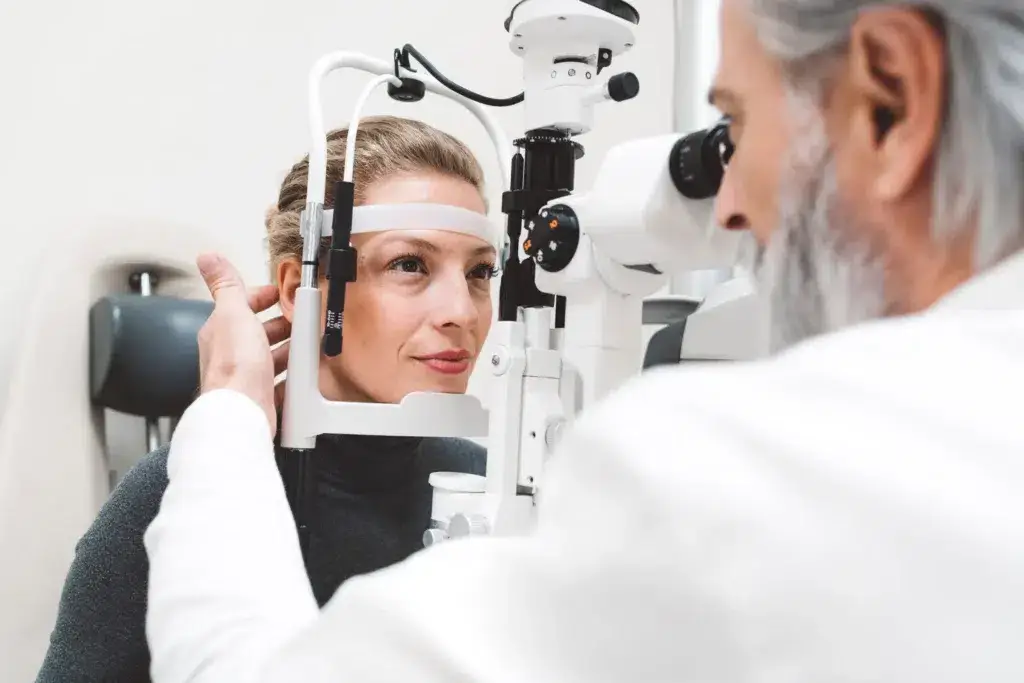Ophthalmologists are medical doctors who specialize in eye care, but their expertise spans a wide range of subspecialties that address specific conditions and needs. From treating retinal diseases to managing glaucoma, ophthalmologists play a significant role in protecting and restoring sight. Here are some of the specializations within ophthalmology specialists:
General Ophthalmologists
General ophthalmologists provide complete eye care for patients of all ages. These eye doctors handle routine eye exams, diagnose common eye conditions, and treat basic eye problems. They serve as your primary eye care physician and can manage most vision-related issues.
General ophthalmologists perform comprehensive eye examinations that check your vision, eye pressure, and overall eye health. They can diagnose and treat conditions such as dry eyes, red eyes, and minor eye injuries. These eye specialists also prescribe glasses and contact lenses when needed. When you visit a general ophthalmologist, they evaluate whether you need specialized care. If your condition requires advanced treatment, they will refer you to an appropriate subspecialist.
Surgical Specializations
Some ophthalmologists focus specifically on eye surgery. These surgical specialists have advanced training in operating on different parts of the eye. Common surgical specializations include cataract surgery and glaucoma surgery.
Cataract surgeons specialize in removing cloudy lenses from the eye and replacing them with artificial ones. These eye doctors use modern techniques to help patients regain clear vision. Glaucoma surgeons focus on treating elevated eye pressure and preventing vision loss from glaucoma. They perform various surgical procedures, including traditional surgery and newer microinvasive techniques. These eye specialists work to preserve vision and prevent further damage from this serious condition.
Condition-Specific Subspecialties
Many ophthalmologists choose to specialize in treating specific eye conditions or parts of the eye. These subspecialists undergo further training beyond general ophthalmology to become experts in their chosen area. Here are some of them:
- Retinal Specialists: Retinal specialists focus on problems with the retina, the light-sensitive tissue at the back of the eye. They treat conditions such as macular degeneration, diabetic eye disease, and retinal detachment.
- Corneal Specialists: Corneal specialists address conditions affecting the clear front surface of the eye. They manage problems such as corneal infections, injuries, and diseases that impair vision.
- Pediatric Ophthalmologists: Pediatric ophthalmologists are dedicated to treating eye conditions in children. They handle conditions such as lazy eye, crossed eyes, and vision issues that may hinder learning.
These subspecialists play a fundamental role in preserving and restoring vision, offering targeted care to meet the unique needs of their patients.
Impact on Long-Term Eye Health
Regular care from qualified ophthalmologists plays a significant role in maintaining your vision. These eye care physicians can detect eye problems before they cause noticeable symptoms. Early detection often leads to effective treatment and better outcomes.
Ophthalmologists help prevent vision loss through comprehensive eye examinations and appropriate treatment. They monitor eye pressure to prevent glaucoma damage and check for early signs of macular degeneration. They also manage diabetic eye disease to prevent complications that could threaten your sight. The specialized training of different ophthalmologists helps patients with complex eye conditions receive expert care. When general eye doctors work together with subspecialists, patients benefit from a comprehensive approach to eye health.
Consult Expert Ophthalmologists Today
Understanding the different types of ophthalmologists helps you make informed decisions about your eye care. Whether you need routine eye care or treatment for a specific condition, choosing the right eye specialist is key to maintaining your vision. Contact an eye care practice near you to schedule regular eye examinations with qualified ophthalmologists to protect your long-term eye health.

